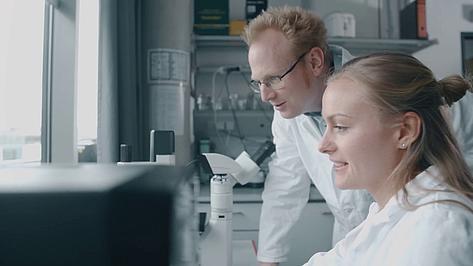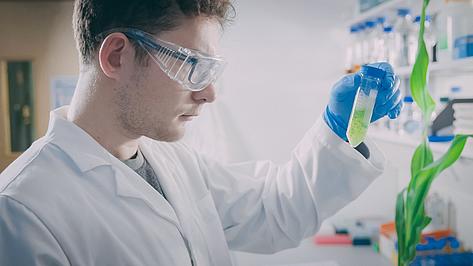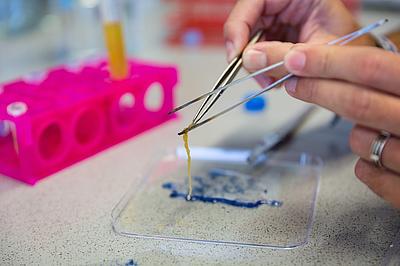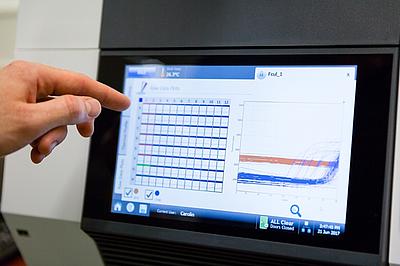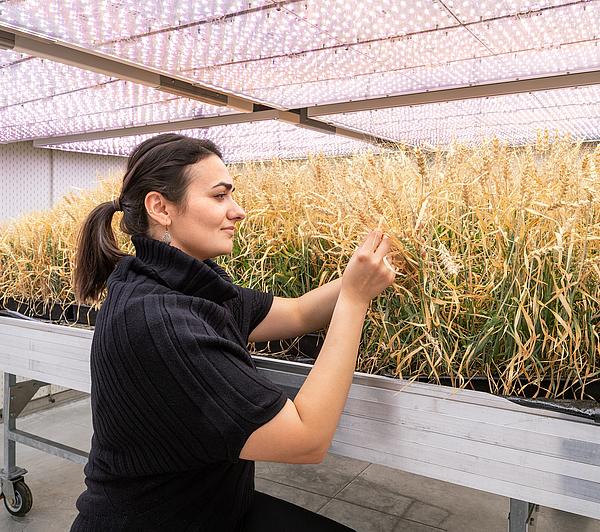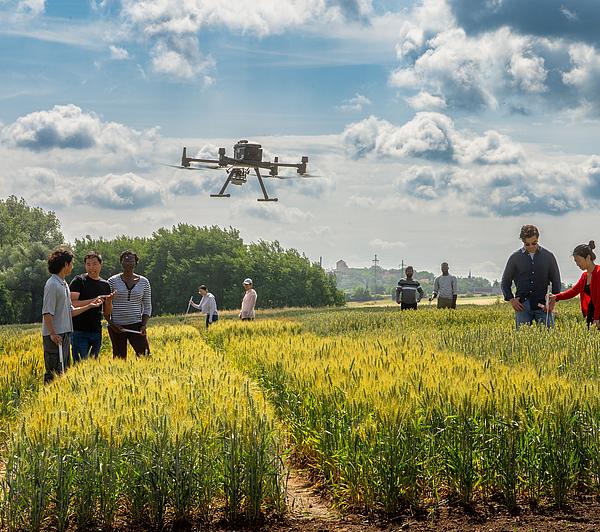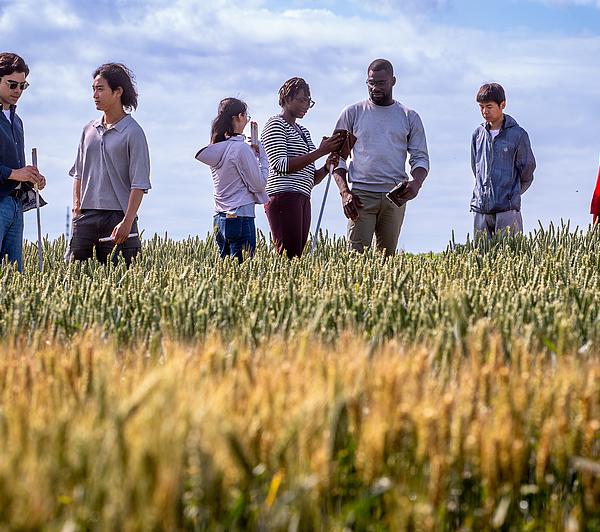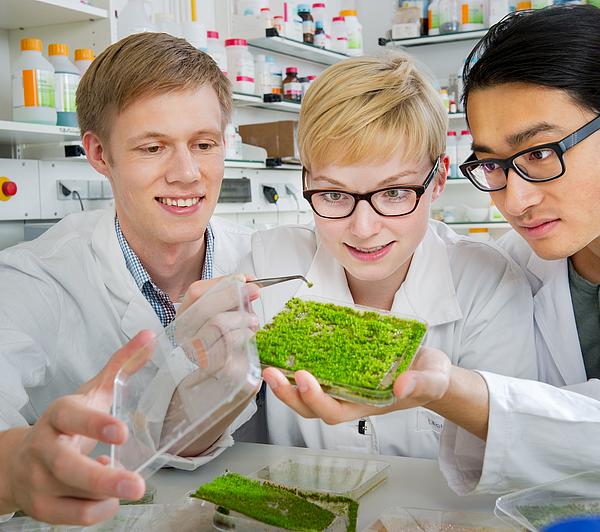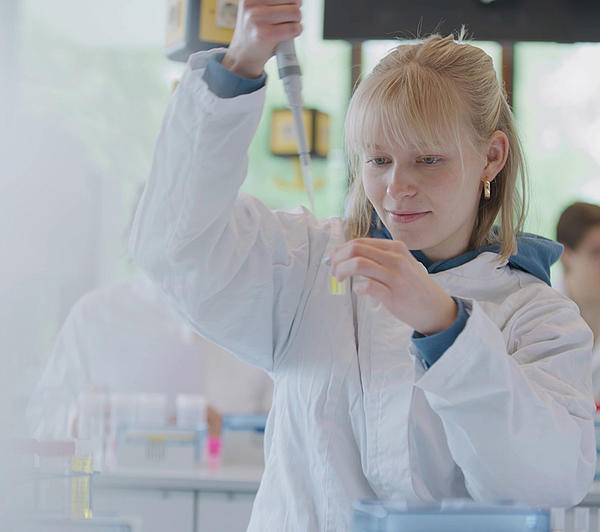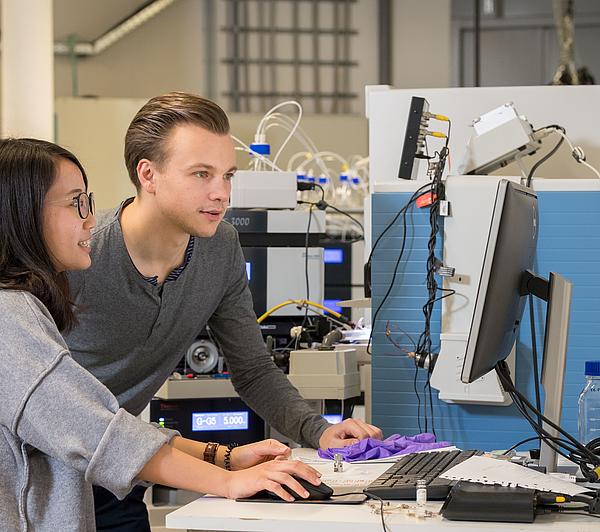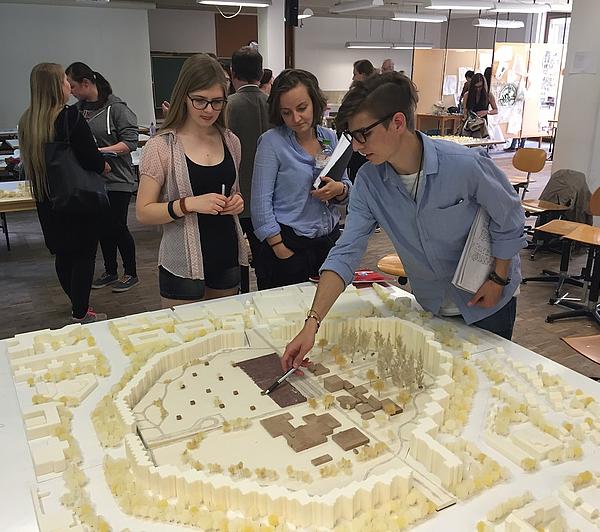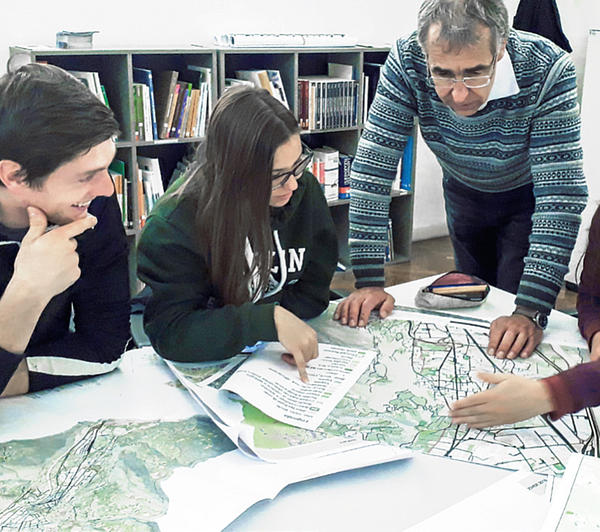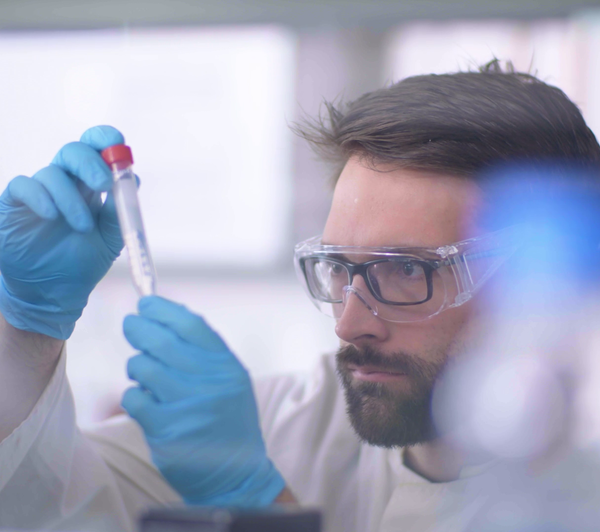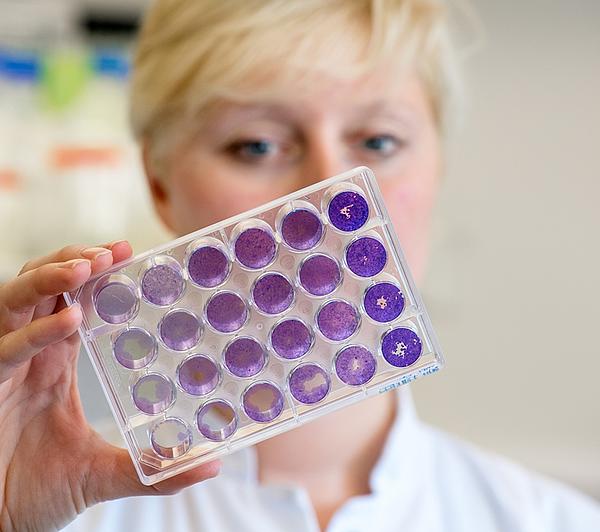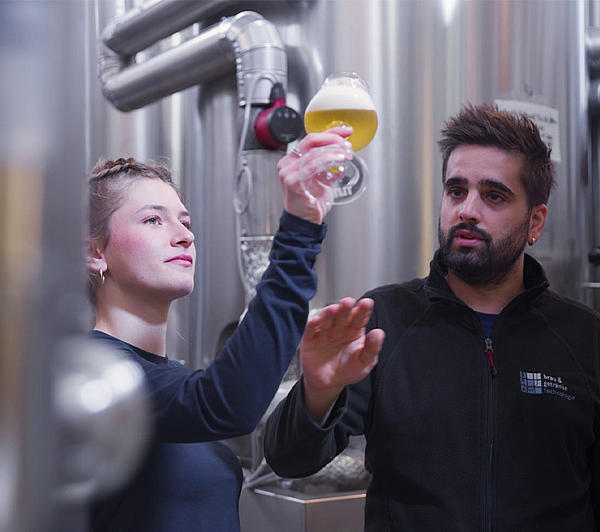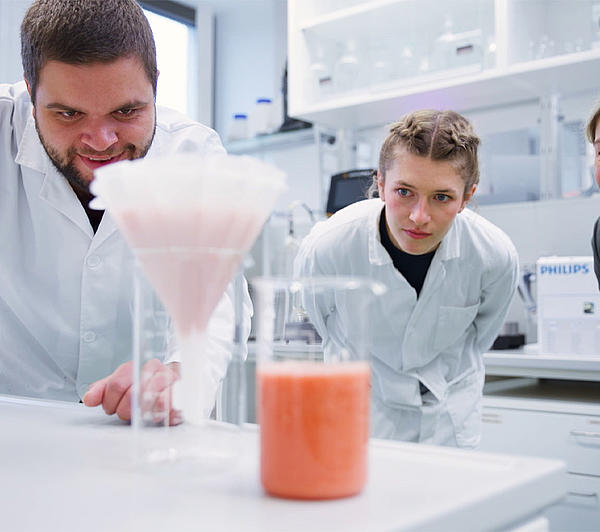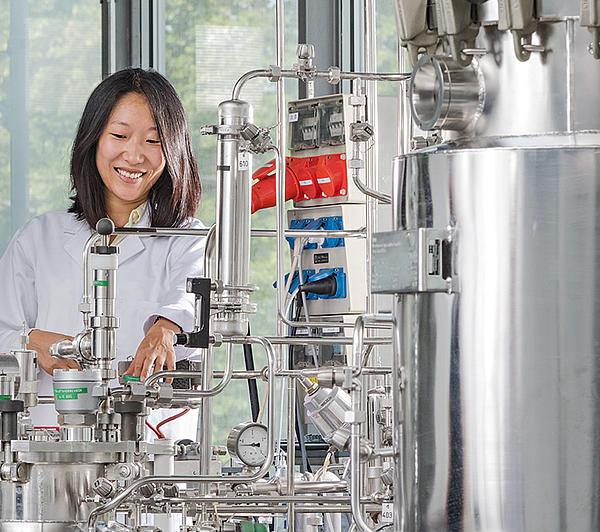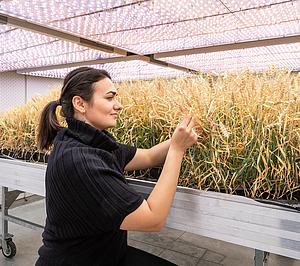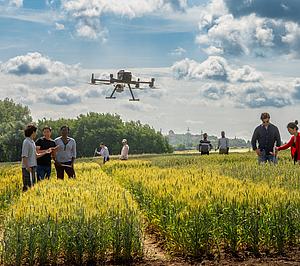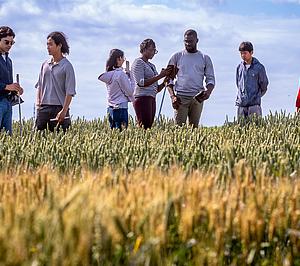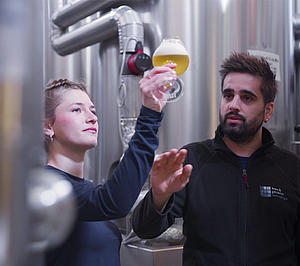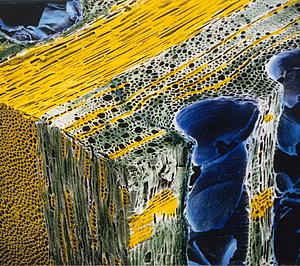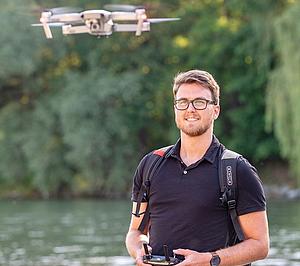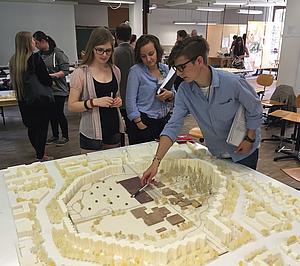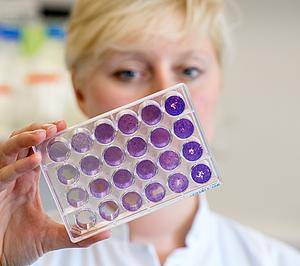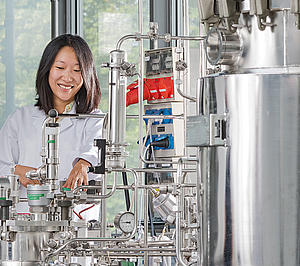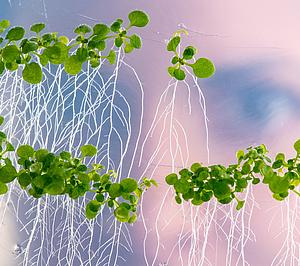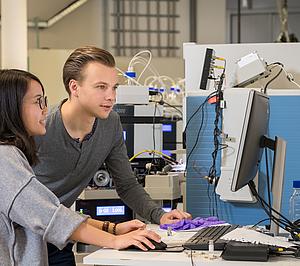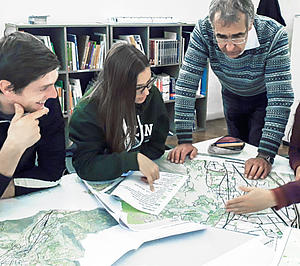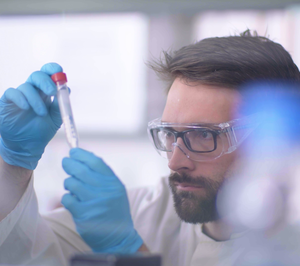How can we secure the world's food supply? How can we preserve natural resources and mitigate the effects of climate change?
By studying Agricultural Biosciences at the TUM School of Life Sciences, you become an expert with a set of skills needed to address these and other important challenges of our time. The M.Sc. Agricultural Biosciences offers courses in biological disciplines relevant for crop and livestock production. It integrates molecular, biochemical, physiological, genetic and genomic knowledge and quantitative and computational approaches in a unique, interdisciplinary agricultural study program.
Upon graduating from the TUM study program in Agricultural Biosciences, you will be a professional in basic biological research and data science. You will be well versed in a comprehensive spectrum of methods that enables you to address and implement key innovations in agricultural biosciences.
Are you interested in enhancing your knowledge and skills for a future in the rapidly evolving field of agricultural science? Then please take a close look at our new study program!
Key Data
Degree: Master of Science (M.Sc.)
Standard Duration of Studies (Number of Semesters): 4 semesters (full time), 120 credits
Start of Degree Program: Winter semester
Language of Instruction: English (presumed language proficiency: TOEFL with at least 88 points or IELTS with at least 6.5 points)
Requirements: Bachelor's degree of at least six semesters awarded at a German or foreign university, or at least an equivalent degree in the field of life sciences with a focus on plant and/or animal sciences; these are in particular the study programs Agricultural Sciences, Horticultural Sciences, Life Sciences Biology und Molecular Biotechnology or comparable study programs
Admission Category: Aptitude assessment for Master
Main Locations: Freising (Greater Munich area)
Characteristics
What are the main characteristics of the study program?
Agricultural biosciences offer solutions to major societal challenges. They can make significant contributions to securing food supplies, preserving natural resources, and mitigating the effects of climate change.
This international study program Agricultural Biosciences focuses on basic biological research for an efficient and environmentally friendly agricultural production of crop and livestock species. It aims to understand crop and livestock species from the level of cells up to the whole organism and populations.
In contrast to other master´s programs that have a specialized view on basic research and distinguish between plant and animal science, we at TUM believe that a generic approach is more timely as many biological mechanisms are shared between plants and animals. A strong focus on molecular as well as computational methods reflects the TUM strategy to value innovation as the basis for knowledge.
The M.Sc. Agricultural Biosciences deals with different organisms, namely plants, animals and microbes. The program takes advantage of the synergistic effects created by integrated studies on plant and animal species teaching generic as well as specific biological concepts, methods and tools. It reflects the high level of innovation in agricultural biosciences and prepares graduates for a multi-path career allowing for flexibility and migration in the job market.
Aims and content
What is this study program about?
The M.Sc. Agricultural Biosciences is shaped by the vision of the TUM School of Life Sciences offering a basic, mechanistic understanding of biological processes underlying agricultural crop and livestock production combined with expertise in handling data rich challenges and quantitative data analysis.
What competences and skills do I acquire?
As a graduate in Agricultural Biosciences, you will have a profound knowledge of molecular, biochemical and physiological processes contributing to agricultural production. You are able to optimize processes leading to genetic improvement of crops and livestock. Through knowledge on the genotype-phenotype relationship, you can optimize production environments. Graduates learn how to integrate heterogeneous data from different disciplines, handle large experimental data sets and become proficient in predictive analytics. You can assess molecular and computational methods with respect to their impact and trade-offs in practice and can communicate their relevance for agricultural production in a livable environment.
As a graduate, you will...
- have a profound understanding of the scientific basis of biological processes relevant for agricultural production.
- be able to perform research in the field of Agricultural Biosciences and can link your knowledge and results to other disciplines.
- be aware of societal challenges and demands in the context of Agricultural Biosciences and possess the social skills to communicate across disciplines and cultures.
- have developed your self-competencies for navigating in a changing environment and managing complex projects.
How is the study program structured?
During the first and second semester five compulsory modules - Physiology, Plant and Animal Cell Biology, Immunology: Crop and Livestock Health and Disease, Genetics and Genomics as well as Statistical Computing and Data Analysis - have to be completed. After passing these core courses, students possess solid knowledge in basic biological concepts relevant for agricultural production.
Elective modules are very important in the study program. You can choose from a list of different lab courses that cover either molecular or computational techniques. In addition, the program offers research tool modules that allow for independent study and enable students to perform research in the field of Agricultural Biosciences.
By opening a mobility window in the third semester students are encouraged to gain international study experience through exchange programs such as Erasmus+ or TUMexchange. If approved by the Examination Board you can take up a research internship outside TUM, e.g. with a qualified industry partner or an external research organization.
The fourth semester is devoted to preparing the Master's thesis that concludes the study program. In their thesis, students identify and address a research question in the Agricultural Biosciences by choosing and implementing appropriate molecular, experimental or data methods. The thesis raises your professional profile.
For detailed information on the program's structure and its range of modules, please see the following links:
Job Perspectives
Upon graduating, you can find employment in the national or international job market, for example at universities, research institutes, in the public sector or in biotech, breeding and life science companies.
Career opportunities also open up in the field of international organizations such as the CGIAR centers, FAO and World Health Organization (WHO).
Furthermore, more and more young scientists with expertise in agricultural biosciences are finding employment in smaller companies and startups in areas such as biotechnology and machine intelligence providing technologies or service to the agricultural sector.
Graduates with combined expertise in molecular biology and quantitative and computational methods are highly sought after in the job market, as the number of graduates does not meet the demand of qualified personnel. It is expected that the demand will increase as molecular methods and machine intelligence will fundamentally change the agricultural sector and increase the demand for research and development.
Wie können wir die Welternährung sichern?
Wie die natürlichen Ressourcen erhalten und den Auswirkungen des Klimawandels begegnen? Mit dem englischsprachigen Studiengang Agricultural Biosciences an der TUM School of Life Sciences erlangst du die biowissenschaftliche Expertise und Fähigkeiten, die zur Bewältigung dieser und anderer wichtiger Herausforderungen unserer Zeit erforderlich sind. Im Studium konzentrierst du dich auf die biologische Grundlagenforschung für eine effiziente und umweltfreundliche Agrarproduktion von Nutzpflanzen und Nutztierarten. Agricultural Biosciences integriert molekulares, biochemisches, physiologisches, genetisches und genomisches Wissen sowie quantitative und computergestützte Ansätze in einem einzigartigen, interdisziplinären agrarwissenschaftlichen Studienprogramm. Bist du bereit für eine Zukunft im dynamischen Umfeld der Agrarwissenschaften? Dann wirf gleich einen Blick auf unseren neuen internationalen Masterstudiengang!
Warum gerade diesen Studiengang studieren?
Agrarbiowissenschaften bieten Lösungen für die großen gesellschaftlichen Herausforderungen und können zur Sicherung der Nahrungsmittelversorgung, zur Erhaltung der natürlichen Ressourcen und zur Minderung der Auswirkungen des Klimawandels beitragen. Der komplett englischsprachige Studiengang Agricultural Biosciences verbindet in einzigartiger Form die Tier- und Pflanzenwissenschaften. Du wirst lernen, biologische Mechanismen in Pflanzen- und Tierarten auf Ebene der Zelle, des gesamten Organismus und der Populationen zu verstehen. Um die entsprechenden Daten erheben, verarbeiten und darstellen zu können, benutzt du spezielle Konzepte, Methoden und Tools. Besonders wichtig werden dabei molekulare und computergestützte Methoden sein. Damit bist du perfekt vorbereitet für eine Karriere in einem innovativen und dynamischen Arbeitsumfeld.
Wie vielfältig sind die Berufschancen?
Nach dem Studium steht dir der nationale und internationale Arbeitsmarkt offen – mit Tätigkeiten an Universitäten, Forschungsinstituten, im öffentlichen Sektor oder in Biotech-, Züchtungs- und Life-Science-Unternehmen. Auch im Bereich internationaler Organisationen wie den CGIAR-Zentren, der FAO und der Weltgesundheitsorganisation (WHO) bieten sich Karrieremöglichkeiten.
Immer mehr junge Wissenschaftler und Wissenschaftlerinnen mit Kompetenzen in den Agrarbiowissenschaften finden Jobs in kleineren Unternehmen und Start-ups im Bereich Biotechnologie und Maschinenintelligenz, die Technologien oder Dienstleistungen für den Agrarsektor anbieten.
Als Nachwuchswissenschaftler oder Nachwuchswissenschaftlerin mit kombiniertem Fachwissen sowohl in molekularbiologischen als auch in quantitativen und computergestützten Methoden sind deine Fähigkeiten auf dem Arbeitsmarkt sehr gefragt. Aktuell werden mehr Absolventinnen und Absolventen in diesen Bereichen gesucht als überhaupt vorhanden sind. Molekulare Methoden und künstliche Intelligenz werden den Agrarsektor grundlegend verändern – so werden zukünftig noch mehr Stellen im Forschungs- und Entwicklungsbereich der Agrarwissenschaften zu besetzen sein.
Welche Studieninhalte kommen auf dich zu?
Im Einklang mit der Vision der TUM School of Life Sciences, vermittelt dir der Studiengang ein grundlegendes, mechanistisches Verständnis biologischer Prozesse, auf denen die Agrarproduktion von Nutzpflanzen und -tieren basiert – stets kombiniert mit Expertise in Datenerhebung und quantitativer Datenanalyse.
Im ersten und zweiten Semester absolvierst du fünf Pflichtmodule: Physiology, Plant and Animal Cell Biology, Immunology: Crop and Livestock Health and Disease, Genetics and Genomics sowie Statistical Computing and Data Analysis. Nach dem Bestehen dieser Kernkurse verfügst du über solide Kenntnisse in grundlegenden biologischen Konzepten, die für die Agrarproduktion relevant sind.
Wahlmodule haben im Studiengang einen hohen Stellenwert. Du kannst aus einer Reihe von verschiedenen Laborkursen wählen, die entweder molekulare oder computergestützte Techniken abdecken. Darüber hinaus bieten wir Research Tool Module an, die ein unabhängiges Studium ermöglichen und dich in die Lage versetzen, Forschung im Bereich der Agrarbiowissenschaften durchzuführen.
Im dritten Semester kannst du internationale Studienerfahrungen über Austauschprogramme wie Erasmus+ oder TUMexchange sammeln. Auch ein Forschungspraktikum außerhalb der TUM ist möglich, z.B. bei einem qualifizierten Industriepartner oder einer externen Forschungsorganisation.
Im vierten Semester schreibst du eine Master’s Thesis und schließt damit das Studium ab. In deiner Thesis identifizierst und bearbeitest du eine Forschungsfrage der Agrarbiowissenschaften, indem du geeignete molekulare, experimentelle oder datenbasierte Methoden auswählst und umsetzt. Über die Themenwahl kannst du dein berufliches Profil schärfen.
Welche Kompetenzen und Fähigkeiten erlangst du?
Als Absolventin oder Absolvent des Studiengangs Agricultural Biosciences verfügst Du über ein fundiertes Wissen molekularer, biochemischer und physiologischer Prozesse der Agrarproduktion. Du bist in der Lage diese Prozesse zu optimieren und ihre genetischen Grundlagen bei Nutzpflanzen und Nutztieren zu verstehen. Durch die Kenntnis der Genotyp-Phänotyp-Beziehung kannst du Produktionsumgebungen effektiv gestalten. Unsere Absolventinnen und Absolventen haben gelernt, heterogene Daten aus verschiedenen Disziplinen zu integrieren, große experimentelle Datensätze zu handhaben und verfügen über Kenntnisse in der prädiktiven Analytik. Du kannst beurteilen, wie sich molekulare und computergestützte Methoden in der Praxis auswirken und wie sie am besten für eine effiziente und nachhaltige Agrarproduktion eingesetzt werden sollten.
Als Absolvent oder Absolventin, wirst du...
- ein tiefgreifendes Verständnis der biowissenschaftlichen und für die Agrarproduktion relevanten Grundlagen haben.
- im Bereich der Agrarbiowissenschaften forschen und dein Wissen und deine Ergebnisse mit anderen Disziplinen verknüpfen können.
- dir der gesellschaftlichen Herausforderungen und Anforderungen der Agrarbiowissenschaften bewusst sein und über die nötigen Soft Skills verfügen, um über Fachdisziplinen und Kulturen hinweg zu kommunizieren.
- deine Selbstkompetenzen soweit entwickelt haben, um dich in einem dynamischen Umfeld zu bewegen und komplexe Projekte zu managen.

